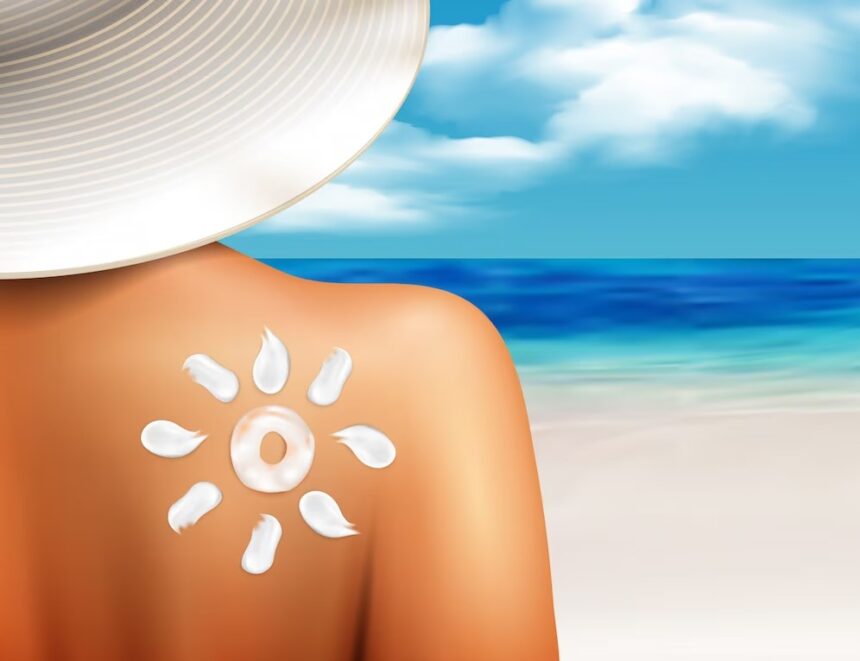South Africa is renowned for its beautiful landscapes, diverse wildlife, and abundant sunshine. However, the intense sun exposure in the country can pose risks to your skin’s health. Protecting your skin from the harsh South African sun is vital to prevent sunburn, premature aging, and reduce the risk of skin cancer. This article provides essential tips for effective sun protection, enabling you to enjoy the sun safely and maintain healthy skin.
- Wear Sunscreen Daily:
Sunscreen is your first line of defense against harmful UV rays. Choose a broad-spectrum sunscreen with a high Sun Protection Factor (SPF) of at least 30 or higher. Apply it generously to all exposed areas of skin, including the face, neck, arms, and legs. Reapply every two hours, or more frequently if you are swimming or sweating. Remember, sunscreen is necessary even on cloudy or overcast days, as UV rays can penetrate through the clouds.
- Seek Shade:
When the sun’s rays are strongest, typically between 10 a.m. and 4 p.m., seek shade whenever possible. Find shelter under umbrellas, trees, or awnings to minimize direct sun exposure. If you are planning outdoor activities, schedule them for early morning or late afternoon when the sun is less intense.
- Wear Protective Clothing:
Covering up with clothing can provide an extra layer of protection against the sun. Opt for lightweight, loose-fitting clothing made from tightly woven fabrics. Long-sleeved shirts, long pants, and wide-brimmed hats can shield your skin from harmful UV rays. Don’t forget to protect your eyes with sunglasses that block both UVA and UVB rays.
- Stay Hydrated:
South Africa’s warm climate, particularly during the summer months, can lead to dehydration and dry skin. Proper hydration is essential for maintaining healthy skin. Drink plenty of water throughout the day to keep your skin hydrated and to aid in regulating body temperature. Avoid excessive alcohol and caffeinated beverages, as they can contribute to dehydration.
- Be Sun-Smart at the Beach:
When visiting South Africa’s beautiful beaches, take extra precautions to protect your skin. Apply sunscreen before heading to the beach, and reapply it after swimming or sweating. Use a water-resistant sunscreen if you plan to spend time in the water. Consider using a beach umbrella or tent to create shade and limit direct sun exposure. Don’t forget to wear a wide-brimmed hat, sunglasses, and protective clothing to cover your body.
- Take Care of Your Lips:
Your lips are particularly susceptible to sun damage. Protect them by using a lip balm or lipstick that contains SPF. Apply it generously and reapply throughout the day, especially after eating, drinking, or swimming.
- Be Mindful of Reflection:
UV rays can reflect off surfaces such as water, sand, and snow, intensifying their effects. In South Africa, where outdoor activities often involve these elements, take extra precautions. Apply sunscreen before participating in water sports, beach activities, or spending time near reflective surfaces. Wear polarized sunglasses to reduce glare and protect your eyes from UV rays.
- Regular Skin Checks:
Perform regular self-examinations of your skin to monitor for any changes, including new moles, growths, or lesions. If you notice any suspicious changes or unusual skin concerns, consult a dermatologist promptly. Early detection of skin cancer can significantly improve treatment outcomes.
Protecting your skin from the harsh South African sun is crucial for maintaining healthy and youthful skin while minimizing the risk of sunburn and skin cancer. By following these essential tips, such as wearing sunscreen daily, seeking shade, wearing protective clothing, staying hydrated, and being mindful of reflection, you can enjoy the outdoors safely and safeguard your skin’s well-being. Remember, sun protection is a year-round commitment, not just a seasonal practice.










